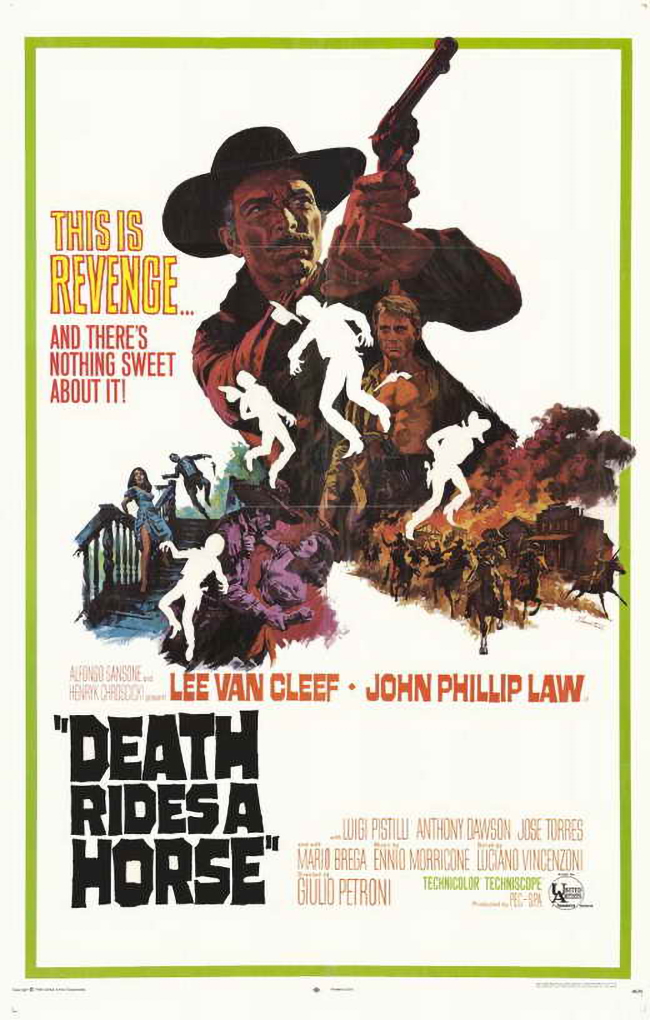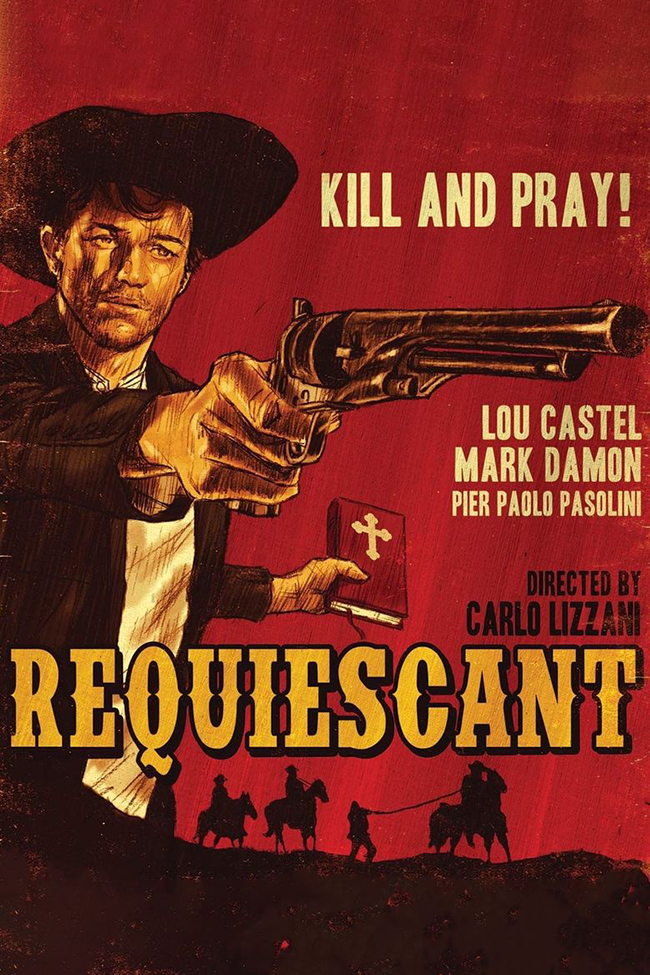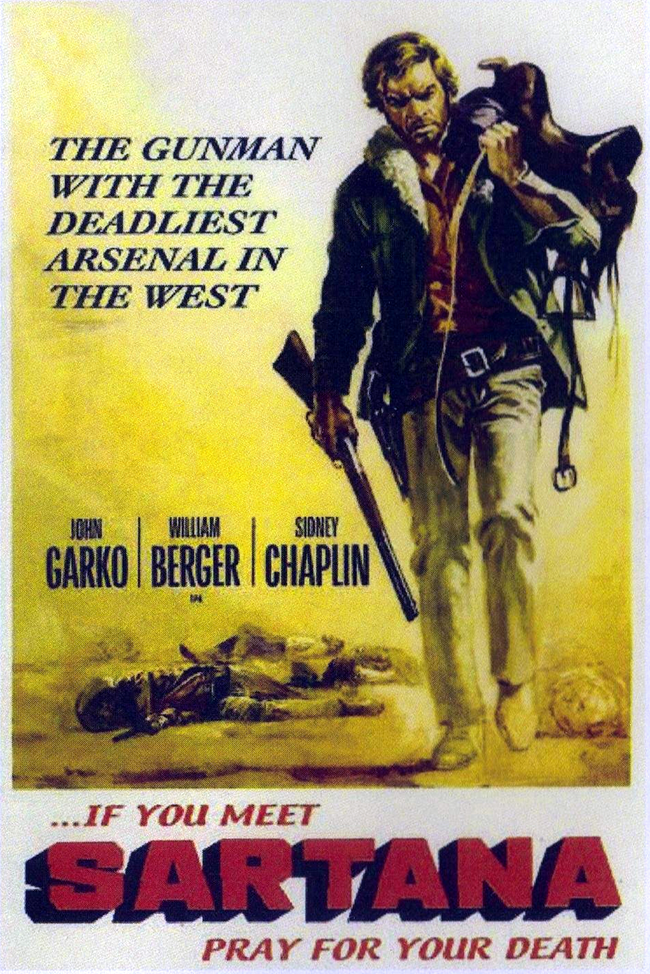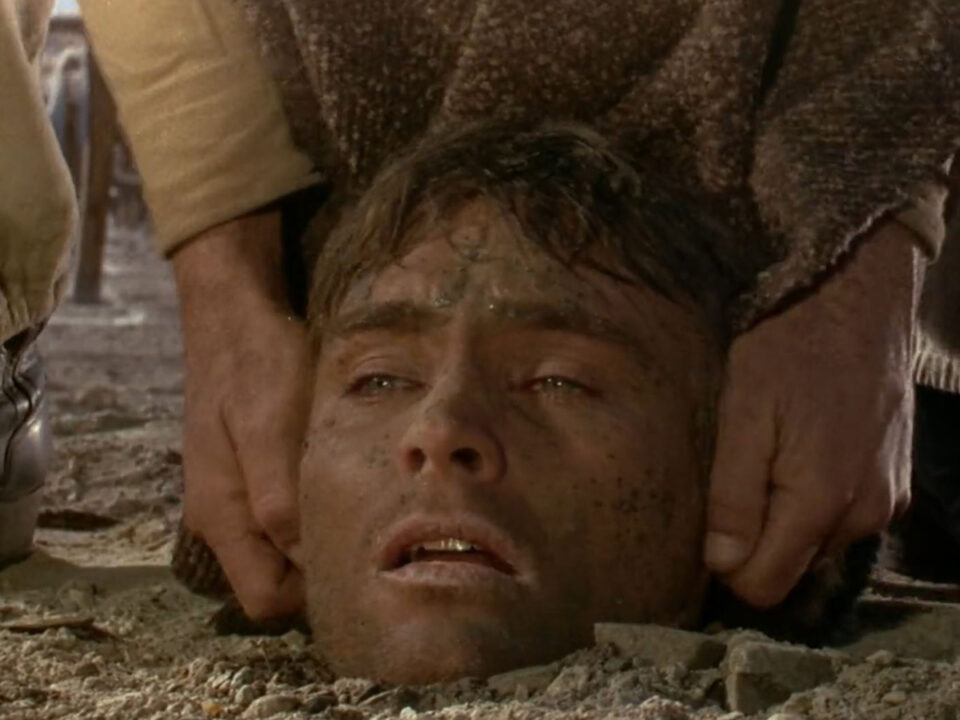Spaghetti Westerns are not my favorite Form of the Western cinematic experience. Which might be surprising since I usually enjoy a fair amount of cynicism in my films, but for me nothing can beat the pure white-meat babyface appeal of classics like My Darling Clementine and Rio Bravo. On the other hand, if you can get past the overdubbed dialog, casual misogyny, and glorified sadism, there is nothing quite like watching a superhuman cowboy pulling a goddamned coffin down the main street of the filthiest frontier town you could ever imagine.
Still, I’d mostly only ever seen the hits, so recently I watched some deeper cuts, to mostly underwhelming results. If you want the TLDR version of this post, Death Rides a Horse is decent, you can skip the rest (and it too if you’ve got better things to do). If you must have more details, here is a bunch of barely faint praise:
Day of Anger (Tonino Valerii, 1967)

The story here could have been straight from Hollywood about an impressionable boy falling in with a gunslinger only to find out the life of a hired gun isn’t what he expected. Unfortunately the pretty boy lead Giuliano Gemma has all the charisma (and acting ability) of a wet mop and you will find yourself wishing you were watching a better movie every second he is on screen. Lee Van Cleef trying his best and the ridiculous “flintlocks from horseback” duel scene can’t save this one.
Soundtrack notes:
I might not have liked the movie, but Riz Ortolani nails the theme here, Morricone-esque, but definitely with his own style (this could even work a Bond movie). Great stuff.
Death Rides a Horse (Giulio Petroni, 1967)

The “boy whose family is murdered and he trains his whole life for revenge” storyline is pretty uninspired (and the big twist a surprise to no one), but this was filmed with some style, and the pretty boy lead is, if nothing else, ok (Van Cleef, as usually, selflessly holds up his end of things). You’ve seen this all before, but this was the kind of thing I was hoping for watching these films–some good old fashioned ass-kicking and violence without any boring parts.
Soundtrack notes:
Not my favorite Morricone work, but still a fine theme. Morricone’s “Navajo Joe” does the Native American appropriation much more successfully to my ears.
Requiescant (Carlo Lizzani, 1967)

A bizarre film, even by Spaghetti Western standards, this is a weird combination heavy handed political commentary and extreme (even for Spaghetti Westerns!) sadism. The main character is kind of naive halfwit played semi convincingly by Lou Castell, living out some kind of weird stepsister fantasy as he tries to rescue his beloved Princy from the whorehouse she ran away to. Mark Damon is fun as the over the top racist confederate bad guy, but the film is too uneven and preachy (I’m sure there’s some heavy stuff about communism here–if you want to bother to dig for it) to make all the nastiness worth it.
Soundtrack notes:
I liked his work on Day of Anger, but Riz Ortolani impressed me less here. The opening guitar ramblings are ok and reasonably atmospheric, but go nowhere, and the rest of the film’s soundtrack was pretty pedestrian.
If You Meet Sartana, Pray for Your Death (Gianfranco Parolini, 1968)

First off, I want to say that this is not a great (or even good) movie. Low budget, shamefully rips off the Dollars films (repeatedly), just plain ridiculously plotted (at times feels like an unending sequence of people getting gunned down by their own men, only to then get gunned down by their own men, etc)–I just want to be clear that I’m not recommending it.
However, Gianni Garko at least has a bit of screen presence as Sartana, and William Berger puts in a good turn as the bad guy, which made the who thing watchable enough. Also of amusing note is Klaus Kinski, who they apparently could only afford for a couple of scenes so he just got dumped into the film as the partner/exact same character as the bad guy until his early death.
There are a few decent moments (the final shoot out in the dark barn works well enough), but Gatling gun massacres hit different when they just keep randomly happening with zero setup.
Soundtrack Notes:
The soundtrack by Piero Piccioni is pretty disjointed veering from a by the numbers dramatic score to an almost psychedelic freak-out, none of it works particularly well.


Leave A Reply